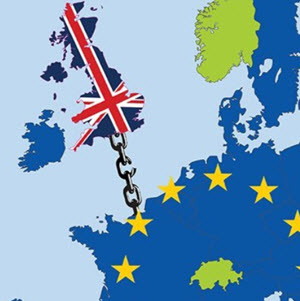Brexit Britain: What’s going on?
 As we enter a new year, it is interesting to take a look at the Brexit process and see what’s happened so far. At the start of October 2016, our new Premier Minister Theresa May announced that Article 50 – which triggers two years of formal exit negotiations with the European Union – will be invoked before the end of the first quarter of 2017. This means that if everything goes according to plan, the United Kingdom will leave the union in spring 2019.
As we enter a new year, it is interesting to take a look at the Brexit process and see what’s happened so far. At the start of October 2016, our new Premier Minister Theresa May announced that Article 50 – which triggers two years of formal exit negotiations with the European Union – will be invoked before the end of the first quarter of 2017. This means that if everything goes according to plan, the United Kingdom will leave the union in spring 2019.
Already, this time-line is being challenged however, by forces who claim that the Premier Minister cannot invoke Article 50 of the Treaty on European Union without the prior approval of Parliament in the form of an Act of Parliament. A formal lawsuit has been filed, and the case is to be handled by the Supreme Court, who is expected to announce their verdict later this month. There has already been a two-day hearing on October 15 and 16. The name of the case is Santos v. Chancellor for the Duchy Lancaster, CO/3281/2016, High Court of Justice, Queen’s Bench Division, Administrative Court (Jul 19, 2016).
Pre-negotiations and appointments
Even though Article 50 has not been invoked, Theresa May has met with several EU leaders to discuss the upcoming Brexit. This includes meetings with Germany’s Angela Merkel and France’s Francois Hollande.
David Davis has been appointed Secretary of State for Leaving the European Union, but it remains unclear if he will assume the day-to-day leadership of the British negotiations team.
On the EU side, the European Commission has selected former French Foreign Minister Michel Barnier to lead EU’s negotiations team.
Two issues that are believed to cause significant tension in future talks are free trade and immigration, where the UK is expected to ask for extensive free trade agreements while simultaneously wanting to impose strict immigration controls on refugees and others wishing the enter the UK.
- Posted by
 admin
admin - Posted in Uncategorized
 Jan, 04, 2017
Jan, 04, 2017 Comments Off on Brexit Britain: What’s going on?
Comments Off on Brexit Britain: What’s going on?
Latest news
- Consequences of Brexit
- MiFID II & Brexit
- Referendum followed by 106% rise in Irish passport applications from Britain in November
- Brexit Britain: Is the economy tanking?
- Brexit Britain: What’s going on?
- No current plans for a British independence day on June 23
- UKIP: James quits; Farage steps back in
- Brexit challenge expected to quickly reach Supreme Court
- Will there be a second Scottish independence poll?
- Stock markets plummet in the wake of Brexit – investors looking for alternative investments

 (Closed)
(Closed)